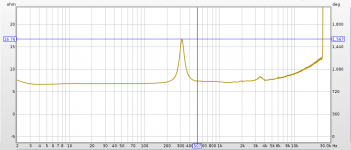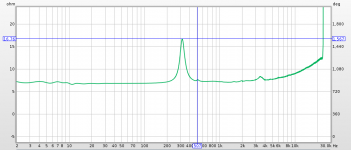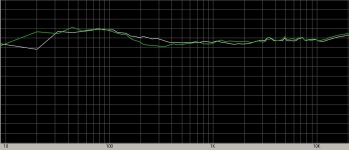Precision or Accuracy?
This might be a bit pedantic, as I think you probably mean Accuracy, but it is a distinction worth making:
Precision is roughly "how many significant figures do your measurements have?" - Accuracy on the other hand is "how many of those figures are actually right?", or, perhaps, "how close is my reading to the truth?"
In everyday useage, precision is interchangeable with accuracy, in engineering, it isn't.
I don't know what instruments you're using to test which devices, so my answer must be general:
Properly used (read the data sheet), a TL431 is a good, cheap, voltage standard. Combine that with some precision resistors, use null methods and plenty thought and you should be off to a reasonable start.
This might be a bit pedantic, as I think you probably mean Accuracy, but it is a distinction worth making:
Precision is roughly "how many significant figures do your measurements have?" - Accuracy on the other hand is "how many of those figures are actually right?", or, perhaps, "how close is my reading to the truth?"
In everyday useage, precision is interchangeable with accuracy, in engineering, it isn't.
I don't know what instruments you're using to test which devices, so my answer must be general:
Properly used (read the data sheet), a TL431 is a good, cheap, voltage standard. Combine that with some precision resistors, use null methods and plenty thought and you should be off to a reasonable start.
Simon, thanks for comment. I actually meant precision, not accuracy.
To calculate accuracy I should know the actual params of device-under-test but I don't know.
For example, I have measured (using Room EQ Wizard) impedance of speaker two times (see attached images).
The graphs are slightly different. My question is how can I express this difference in numbers ?
To calculate accuracy I should know the actual params of device-under-test but I don't know.
For example, I have measured (using Room EQ Wizard) impedance of speaker two times (see attached images).
The graphs are slightly different. My question is how can I express this difference in numbers ?
Attachments
The graphs are slightly different. My question is how can I express this difference in numbers ?
Integrate the values under the curve.
I believe the issue is more basic. Presumably you want 'a number' that will help you decide which one is 'better'.
I don't think that is possible. You can say, a wider freq response is better, and lower Q in resonances is better, but how to combine this numerically.
Is a 30Hz to 18kHz between -3dB points better that 20Hz-17.8kHz? The latter has lower bandwidth but would be my preferred choice.
jan
I don't think that is possible. You can say, a wider freq response is better, and lower Q in resonances is better, but how to combine this numerically.
Is a 30Hz to 18kHz between -3dB points better that 20Hz-17.8kHz? The latter has lower bandwidth but would be my preferred choice.
jan
Thanks guys for response.
But in my case shape of measurement is matter when integral can return the same value for different shapes.
Ok, for Impedance I can calculate precision for Fc and Q, but how about Frequency/Phase Response ?
I don't need to choose better measurement I just need to evaluate precision of measurements.
Integrate the values under the curve.
But in my case shape of measurement is matter when integral can return the same value for different shapes.
calculate both fc and Q from the graph and compare those!
Ok, for Impedance I can calculate precision for Fc and Q, but how about Frequency/Phase Response ?
I believe the issue is more basic. Presumably you want 'a number' that will help you decide which one is 'better'.
I don't think that is possible. You can say, a wider freq response is better, and lower Q in resonances is better, but how to combine this numerically.
Is a 30Hz to 18kHz between -3dB points better that 20Hz-17.8kHz? The latter has lower bandwidth but would be my preferred choice.
jan
I don't need to choose better measurement I just need to evaluate precision of measurements.
Ok, your device-under-test is a speaker, I was guessing a semiconductor!
But you're still trying to work out how accurate your measurements are - I can tell you from looking at one of your images that the precision of your test setup is two decimal places for impedance at resonant peak, and three decimal places for phase angle!
On a more practical note, don't be surprised at a little variation making this measurement - voice coil temperature and various other factors will make it change.
Am I right in thinking that what you want to know is "how close are your measurements to the truth" ?
If that's the case you're talking about calibrating your test gear - ie testing it against known standards.
For practical purposes, I suggest you don't worry too much about the small differences between the two results you've put up - the biggest of them is only of the order of one decibel or so. I can't imagine the scenario where the difference you've shown is going to be noticeable.
But you're still trying to work out how accurate your measurements are - I can tell you from looking at one of your images that the precision of your test setup is two decimal places for impedance at resonant peak, and three decimal places for phase angle!
On a more practical note, don't be surprised at a little variation making this measurement - voice coil temperature and various other factors will make it change.
Am I right in thinking that what you want to know is "how close are your measurements to the truth" ?
If that's the case you're talking about calibrating your test gear - ie testing it against known standards.
For practical purposes, I suggest you don't worry too much about the small differences between the two results you've put up - the biggest of them is only of the order of one decibel or so. I can't imagine the scenario where the difference you've shown is going to be noticeable.
Am I right in thinking that what you want to know is "how close are your measurements to the truth" ?
Yes, and I want to see it in numbers. I can use standard deviation for parameters like Fc and Q. But how about frequency/phase response ? How close are measurements on graph ?
Attachments
Yes, and I want to see it in numbers. I can use standard deviation for parameters like Fc and Q. But how about frequency/phase response ? How close are measurements on graph ?
So, you are talking about quantifying repeatability or test-retest variability, which isn't the same thing as accuracy at all I'm afraid - if only it were that easy!
Test-retest variability can be caused by variability in your instruments and in your device under test. You could reduce it to zero and still have results that were quite inaccurate, unless you know how well your measuring instruments are calibrated. That said, I'd be surprised if your readings were far from the truth and simply averaging the readings will remove at least some of the variability.
I know though that for whatever reason, you want to quantify the variability. Given the application, perhaps thinking about calibration of your instruments would be more rewarding? In your case these would be your computer soundcard and the software that you're running.
Frequency / time is easy to get right, and it's usually pretty good, thanks to quartz crystals. Other stuff needs a bit more work, but not necessarily very much.
If you'd like to post a schematic of what you've got connected between your computer and the speaker your testing that would be good......
Calibrating test-gear is of interest to me, investigating what looks like pretty minor variability in testing less so.
Hope this helps.
Considering the large differences just due to voice coil temp, humidity, PB, and on and on, like Jan said. you are looking for a simple number in a system that has too many uncontrolled variables. The truth is, it does not matter. Because all of these variables, you don't need that much precision. If you can get 5% consistency, be happy and worry about something else. After all, you are talking about a final system that may have a cap in it. Let the scientists worry about precision, be an engineer.
In the slip-stick days, people did not have the opportunity to add precision that was not there in the first place. I had a Mechanics professor who on the first day asked "What is the value of pi?" Some smart freshman yelled out about twenty digits. The prof yelled "NO; 3" We are building bridges and will multiply margins by 100 anyway. An important lesson. Good thing, as he was a terrible Statics teacher so I actually did learn something in his class. Remember, we went to the moon with slide rules!
In the slip-stick days, people did not have the opportunity to add precision that was not there in the first place. I had a Mechanics professor who on the first day asked "What is the value of pi?" Some smart freshman yelled out about twenty digits. The prof yelled "NO; 3" We are building bridges and will multiply margins by 100 anyway. An important lesson. Good thing, as he was a terrible Statics teacher so I actually did learn something in his class. Remember, we went to the moon with slide rules!
- Status
- This old topic is closed. If you want to reopen this topic, contact a moderator using the "Report Post" button.
- Home
- Design & Build
- Software Tools
- How to evaluate precision of measurements ?


